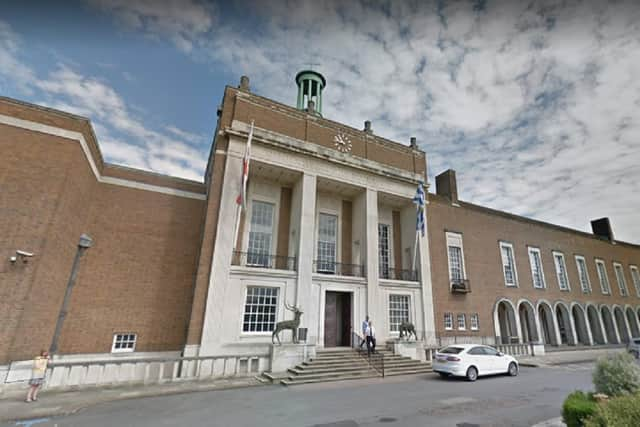Hertfordshire County Council will continue to lobby for virtual meetings to be allowed
and live on Freeview channel 276
Hertfordshire County Council will continue to lobby central government for measures that would allow public bodies to meet virtually, to prevent the spread of Covid-19.
During the first waves of the pandemic, councils and other public bodies were allowed to hold their meetings online, because of time-limited measures in the government’s Coronavirus Regulations.
Advertisement
Hide AdAdvertisement
Hide AdBut from May councils and other public bodies have been told they must hold all their statutory decision-making meetings ‘in person’.


Given the rapid increase in cases of Covid-19 and the Omicron variant in particular, a number of councils across the country are reported to have cancelled meetings in the past week, rather than meet face-to-face.
And on Tuesday, December 14, Hertfordshire County Council took the extraordinary step of asking the majority of councillors to stay away from a full council meeting – in a bid to enable social distancing and prevent the spread of the virus.
Leader of the county council Cllr Richard Roberts believes it is now “essential” that councils are allowed to meet virtually.
Advertisement
Hide AdAdvertisement
Hide AdAnd he says council officers are continuing to make representations to government ‘month by month’ – lobbying for a change in the legislation.
Back in April officials from Hertfordshire County Council spearheaded a legal bid for virtual meetings to be allowed at a hearing in the High Court.
But the High Court determined that under the existing Local Government Act 1972 statutory meetings ‘must take place in a single, specified geographical location’.
Alternatively the government could have opted to extend the legislation that temporarily allowed councils to meet virtually.
Advertisement
Hide AdAdvertisement
Hide AdAnd Cllr Roberts says that – should Covid-19 cases remain high in the New Year – the government will have to consider legislation again.
“The current Omicron variant is putting a huge strain on everybody to be able to conduct our face-to-face meetings safely – and particularly at this time of year,” said Cllr Roberts
“Once Christmas is out of the way, I think government has some really big decisions – as to whether it reinstates emergency legislation, which means we might be going back to having all meetings ‘hybrid’ or online.
“It would appear Omicron is a milder variant in terms of illness – but the number of people becoming infected means that even if we have a small number going in to hospital, the NHS will fall over.
Advertisement
Hide AdAdvertisement
Hide Ad“The government should put back the emergency legislation – so council meetings can be held virtually.”
To illustrate the pace of spread of the Omicron variant Cllr Roberts points to the meeting of the full council on Tuesday (December 14).
Just 24 hours before the meeting 21 councillors had been selected and had agreed to attend – but by the next morning three had had to drop out because they had Covid symptoms or had been told to self-isolate.
“That was just in 24 hours,” said Cllr Roberts. “That’s the rate at which Covid is spreading at the moment.
Advertisement
Hide AdAdvertisement
Hide Ad“If we had had a full council meeting – with 78 councillors and 10 officers – I think we would have had a super-spreader event.
“And then you don’t know how many people would have ended up catching Covid.”
Cllr Roberts says there are no plans in place for how the council and other decision making committees will meet in the New Year.
But without changes in legislation he says it will be “extremely difficult to carry out the functions of local government”.
Advertisement
Hide AdAdvertisement
Hide AdBack in April Hertfordshire County Council – alongside Lawyers in Local Government and the Association of Democratic Services Officers – did go to the High Court, to question whether existing legislation would allow virtual meetings to continue, after May 7.
Essentially they asked the court to focus on the interpretation of ‘meeting’, ‘place’, ‘presence’ and ‘attend’ in the Local Government Act (1972).
But the High Court ruling determined that after May 7 – when Coronavirus Regulations ceased – council meetings ‘must take place in a single, specified geographical location’.
And it suggested primary legislation would be required to allow local authority ‘meetings’ to take place remotely.
Since the ruling the county council is said to have been ‘in regular contact’ with government, to question whether there should be a change.